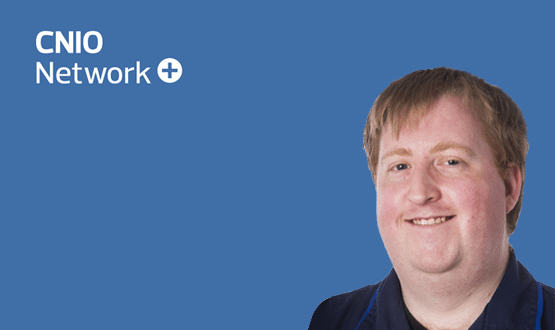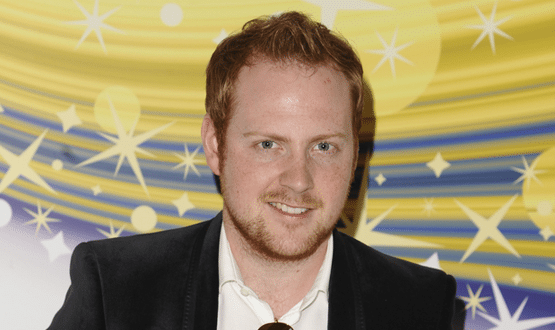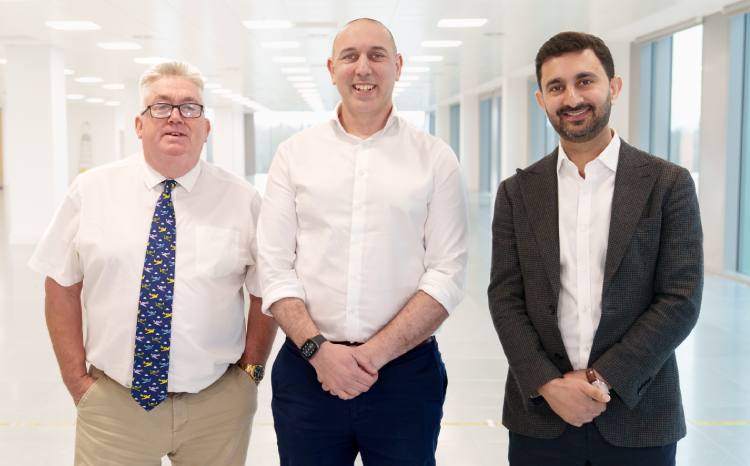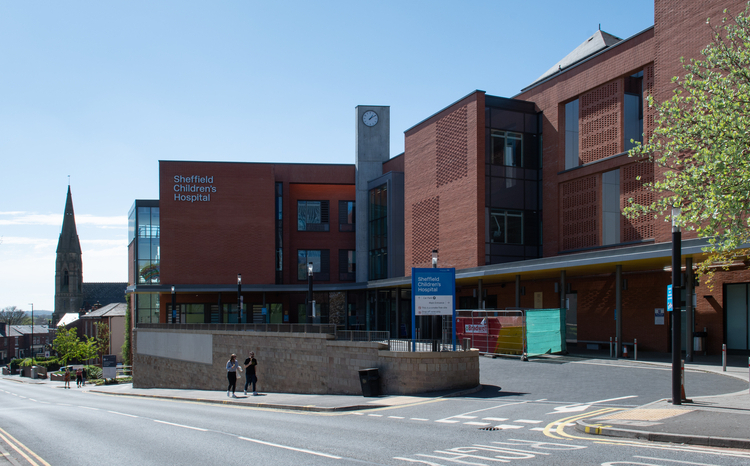The CNIO interview: Kevin Percival, Frimley Health NHS Foundation Trust
- 26 February 2018

Today we are talking to Kevin Percival, who is chief nursing information officer at Frimley Health NHS Foundation Trust. Kevin talks his belief in the importance of the CNIO role, explains why he thinks Florence Nightingale would be a perfect dinner party guest, and reveals his student nursing days nickname.
Why did you become an NHS CNIO?
I see technology as giving health and social care the opportunity to reinvent itself, by allowing it focus back on basics while the technology supports the delivery of care. If the technology is designed and implemented correctly – and the decisions about process redesign made with the clinical workforce – it can actually reduce the amount of time spent replicating, transposing and transferring information. It can release time to care and empower the clinical workforce to be in charge of their own destiny by ensuring they have information and knowledge.
Why do you think the role of CNIO is so important within the NHS and the nursing community?
I believe this is a key role to ensure that the technology that is implemented has the nursing and midwifery voice, from initiation right through to implementation and usage of the technology.
The CNIO role, I believe, brings a unique voice and vision to the team to drive through digital strategies and electronic ways of working.
Although it has been great to have had the development of the CCIO community with predominantly medical clinicians, I think that having a nurse, midwife, allied health professional or pharmacist brings a different perspective that allows the roles to complement each other to ensure that all the needs of the workforce are taken on board.
Within your organisation, what is the most significant digital achievement of the past 12 months?
For me, it’s been the implementation of the electronic document management system (Kainos Evolve). Even though there have been challenges and slow uptake of changes in practice, it has had the important impact of getting the entire organisation to focus on the future with technology.
We have also started to rollout electronic prescribing and medicines administration (Emis Secondary Care EPMA) on to our general wards. That has really focused the nursing workforce, who have embraced it and owned the changes that it has brought about.
What will be the most significant of the next 12 months?
Tendering for an EPR partner. The trust is still currently running two separate PAS systems due to the organisation in October 2013 when Frimley Health NHS Foundation Trust was formed. This will be a really exciting time for us, as it will see a significant move forward digitally for our ward areas that have been left behind in the past while areas such as the emergency departments and intensive care units have enjoyed digitisation for some time now.
The trust is also about to break ground on the most ambitious project in the trust’s history – building a purpose built elective centre at the rear of our Heatherwood Hospital site, which will be designed as digitally first from the ground up. All the staff across the entire organisation are excited about it and really working together to seize the opportunity that this bring for us.
What’s the biggest barrier to being a more effective CNIO?
Having enough time to still be clinically visible with colleagues to ensure that the decisions that are needed are informed from engaging with them, so they do not still think the technology is being forced on them.
What’s the biggest barrier the NHS faces overall in achieving digital transformation?
Time as well as constraints on budgets. Although there has been money from the centre for capital, there is a huge shift to move to revenue models that is making it a difficult sell to trust boards.
There is an expectation that the technology will fix problems straightaway. But the time it takes to do the transformation means it is not seen as a high priority and so engagement can be difficult, as it won’t fix today’s problems – but it will fix tomorrow’s if the time is invested.
Which piece of technology do you think will most help ease winter pressures on the NHS?
Artificial intelligence and machine learning. I believe if we overlaid the [AI] technology on electronic records in all health and social care settings, it could give us much earlier insight which would support clinicians’ decisions – be it to minimise the chances for a patient to have to go into an acute hospital, or to reduce the amount of time it takes to make decisions regarding transfer of care.
If you have one piece of advice for other NHS CNIOs, what would it be?
Nobody truly has all the answers. It is really important that we all work together to share our problems and ideas. It is only by working together that we will truly lead and shape the revolution that we are currently wrapped up in.
Who in the NHS do you admire the most and why?
It has to be the frontline staff who have put their trust in me to do what I do every day, and still take the time to engage with me while working under relentless pressure. Without them I would have no purpose in what I was doing as they are the true leaders in the technology revolution. I am just there to connect and inspire them with the opportunities.
If you were given £30 million to spend on digital transformation within your trust, where would that money go?
I would spend the money in three key areas. The first would be on digital literacy training and education, so staff could be empowered to feel comfortable with the technology both at work and in their personal lives. The second would be to back-fill a wide selection of frontline staff to spend a significant time exploring how we could reoptimise the process through the use of technology. That would include looking both nationally and internationally at how others have done it. The third would be on ensuring that staff had suitable devices to enable them to realise the ways of working that they want to implement.
What is the most over-hyped digital innovation in health?
Apps. The huge numbers that have come into being now make it really difficult to pick out the ones that will truly make a difference to citizen care and wellbeing, and to the delivery of healthcare. I think the huge numbers and the saying of there’s “an app for that” has resulted in so much dilution that we cannot fully engage with and implement them.
What is the most under-rated digital innovation in health?
The PRSB [Professional Record Standards Body] standards. If all health and social care organisations fully implemented them, it would make it so much easier to implement information sharing agreement between partners.
And a few non-digital questions, what’s the worst job you’ve ever had and why?
Before I went into nursing, I worked in a supermarket where I ended up covering for the store cleaner. That involved having to do deep cleans on the meat and fish fridges. Spending hours having to scrub a walk in freezer with the smell of fish coming through while you scrubbed was awful. Although working there taught me a lot of my life lessons that I was able to build on throughout my career.
If you could invite three people, alive or dead, to dinner who would they be?
It would be Steve Jobs, Florence Nightingale and Mother Teresa. I would ask them to evaluate the way we are using technology and information in the NHS and where we should focus next in the delivery of healthcare.
What’s the background image on your home computer?
A picture from The High Roller Observation Wheel in Las Vegas, from my holiday last year.
What’s your favourite piece of technology at home and why?
It has to be my tablet. It allows me to do everything I need to do outside of work, from reading my e-books and e-journals to catching up on e-mails and Skyping with my relatives overseas.
If you could have any other job, what would it be?
Airline pilot. I still find it fascinating every time I fly that they are able to take off and land the plane, with so many people on it as well as the products we enjoy every day.
In a film of your life, who would play you?
It would probably be Charlie Clements, who played Bradley in Eastenders. When I was a student nurse my nickname was Bradley as people told me I looked like him.





